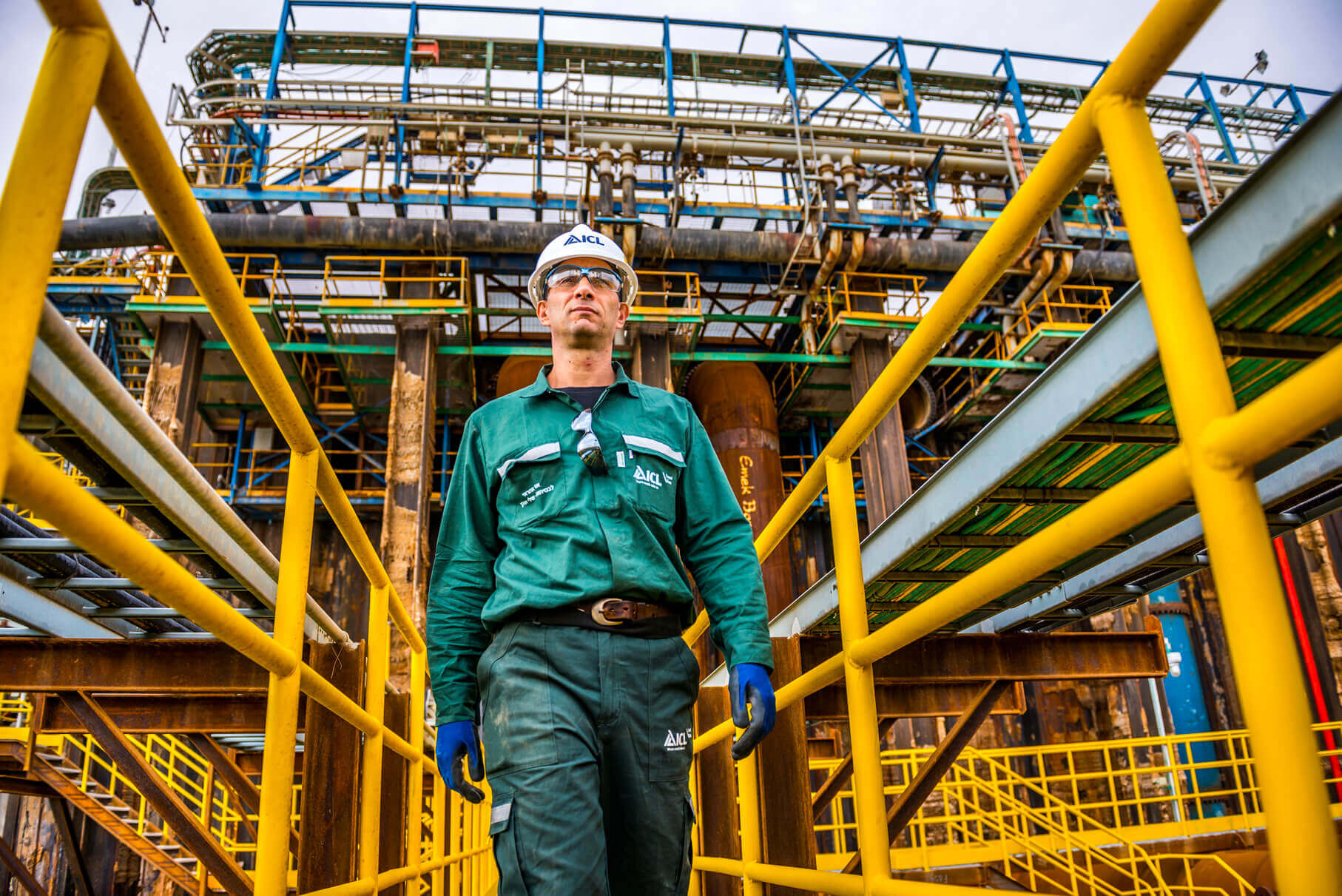Goals & Performance
We are committed to continual improvement of our performance, be it towards our customers, communities, commercial partners and employees. As we succeed in some areas, we face challenges in others. We strive to: be a top-tier company in safety performance and environmental responsibility, an employer of choice, leverage technology and industrial know-how to meet the needs of our customers and adopt best practices for corporate governance.
Sustainable Products & Services
| Products & Services | Goals | Performance | The Next Steps |
|---|---|---|---|
| Increase sales of Polysulphate to about 1M tonnes by 2020 | Sales of Polysulphate increased by 45% compared to 2016 Commencing marketing plan and campaign for PKpluS, a Polysulphate based product, which was sold in hundreds of thousands tons in 2017. | Develop additional Polysulphate-based products and expand into additional markets. | |
| Increase the agricultural Productivity and income of small-scale food producers | ICL was one of the few companies that won the co-funding award of a USAID project for increasing agricultural productivity in Tanzania. | Enable our agronomists to further promote a balanced approach for fertilizer use and management. | |
| Create a science-based assessment tool for sustainable management of chemicals, specifically flame retardants. | ICLג€™s Systematic Assessment for Flame Retardants (SAFRֲ®) assesses the sustainability profile of individual flame retardants based on hazard criteria and potential exposure resulting from their application. Assessments conducted on 100% of ICLג€™s flame retardants using SAFRֲ®. | Continue activities to promote the adoption of the methodology throughout the value chain where it will enable purchasing decisions based on the sustainable use of a flame retardant for specific applications. Prepare a video to increase consumer awareness. | |
| - | - | - | |
| Innovation | Focus on new products and technologies development, applications and formulations in ICL strategic areas: agriculture, food and engineered materials. | ICL invested more than $50M in R&D in 2017. ICL Innovation, which focuses mainly on high-risk technologies in the initial stages of development, has 8 running projects, which are done in collaboration with partners from the academy and/or industry. YPRTECH, our JV in China, is running 20 projects for new products and technologies, based on Phosphorus derivatives. | Increase our involvement in agricultural technology (Ag Tech). |
| Introduce a Sustainability Index for Product Development for all of ICLג€™s relevant business units. | The Sustainability Index tool is fully implemented at ICL Industrial Products. The tool was adopted and is now being implemented in ICLג€™sג€™ two other relevant business units: Advanced Additives and Specialty Fertilizers. | Incorporate the Sustainability Index in day-to day practices of our R&D units to enable the development of sustainable products and thereby increase ICLג€™s offerings of these products. |
Environmental Responsibility
| Goals | Performance | The Next Steps | |
|---|---|---|---|
| GHG Emissions | Reduce 30% of 2008 Scope 1+2+3 Global GHG emissions levels by 2020. | By 2017, ICL GHG emissions have been reduced by 23% compared with 2008 base year emissions, which constitutes 77% of the planned decrease by 2020. It should be noted that excluding ICLג€™s major recent acquisition from 2016 -YPH China-ICL has already surpassed itג€™s 30% reduction target for 2020. Total ICL GHG emissions increased slightly, by 2.6%, in 2017 compared to 2016. The increase is mostly related to the end of electricity supply contracts with private power plants in Israel in early 2017, resulting with higher reliance on electricity from the more carbon intense IEC national grid. | Continue reductions, mainly through the upcoming new Sdom power plant (full operation to commence in 2018), continued transition to natural gas and the ACE energy efficiency program. Reevaluate corporate target due to the inclusion of the ICL China YPH in the GHG inventory. |
| Energy | Make natural gas (NG) the main fuel for ICLג€™s energy intensive sites. Achieve annual savings of $45 million in energy costs by 2020 compared with 2012. Achieve a year-by-year improvement in over 50% of all product based intensity KPI's (MWh per tonne product) | 89% of the fuel consumed by ICL Israelג€™s facilities in 2017 was derived of NG. One further site (ICL Rotem Zin) transitioned from fuel oil to NG in 2017. By the end of 2017, 95% (40/42) of ICL Israel's main energy-consuming installations were converted to NG.26 of ICLג€™s largest global production sites implemented the energy savings methodology (ACE).93% of the energy financial savings goal was reached by the end of 2017.In 2017, 15 of 23 products (65%) showed annual average improvement, therefore achieving the annual target. | By the end of 2018, ICL Haifa F&C is also due to be connected to new gas supplies.During 2017, it is estimated that a further 2 plants will apply energy savings methodology for the first time. Other sites are being revisited to refresh local teams and procedures, and to identify new energy efficiency opportunities. ICL plans to expand the number of products measured for intensity KPI's in 2018. |
| Mine Reclamation | Achieve full reclamation of the remaining 2,500 hectares (out of 5,000) of historical mining areas at ICL Rotem by 2021. | 100 hectares have been restored including grading and approximately 600 hectares are in the process of being restored. | Incorporate ecological research in our mining zones. Implement best practices regarding biodiversity in the mines. |
| Environmental Events | A year-by-year 15% reduction in the total number of environmental events and incidents. A 15% annual reduction in complaints by third parties | To build awareness towards environmental incidents, ICL required its business units to report increasingly more minor incidents. Thus, in 2017 there was an increase of approx. 21% in incident reporting compared with 2016. A 29% reduction in complaints from third parties in same period. | Global EHS management to monitor proactive KPIs: performance of EHS audits, compliance and training plans, incident and complaint investigations and implementation of conclusions, encourage hazard recognition and mitigation. Continue encouragement of rapid and comprehensive internal reporting. Effectively share lessons learned. |
Social Responsibility
| Products & Services | Goals | Performance | The Next Steps |
|---|---|---|---|
| Health & Safety | A year-by-year 15% reduction in the total number of accidents and IR index. | 4% decrease in total accidents (company+contractor employees) from 2016 to 2017. However, a 16 % increase in IR index in same period (based only on company employee accidents, which have slightly increased in 2017, and total work hours which have slightly decreased). Proactive measures are taken to enhance reduction in both KPI's (see safety chapter). Unfortunately, one death of a contractor employee occurred during 2017. | Global EHS management to monitor proactive KPIs: performance of process safety and EHS audits, job safety analysis, compliance and training plans, incident investigations and implementation of conclusions, encourage hazard recognition and mitigation. Continue encouragement of rapid and comprehensive internal reporting. Effectively share lessons learned. |
| Management Standards | Implement ISO 9001, ISO 14001 and OHSAS-18001 (or equivalent) at all of ICLג€™s production sites by 2020. Accredit all ICLג€™s significant energy consuming sites with ISO 50001 or an internal similar standard by 2020. | About 89% of ICLג€™s production sites have implemented and certified these three standards or their equivalents. | Complete the implementation of standards in all of ICLג€™s relevant operations. Incorporate ISO 50001/internal standard at all relevant sites. |
| Diversity | Increase diversity in ICL | Created an internal global forum to promote diversity. Update recruitment and promotion procedures to increase diversity. | Creating opportunities for career advancement, for promising women and minority employees. Increase our exposure to potential talent from diversified groups. |



